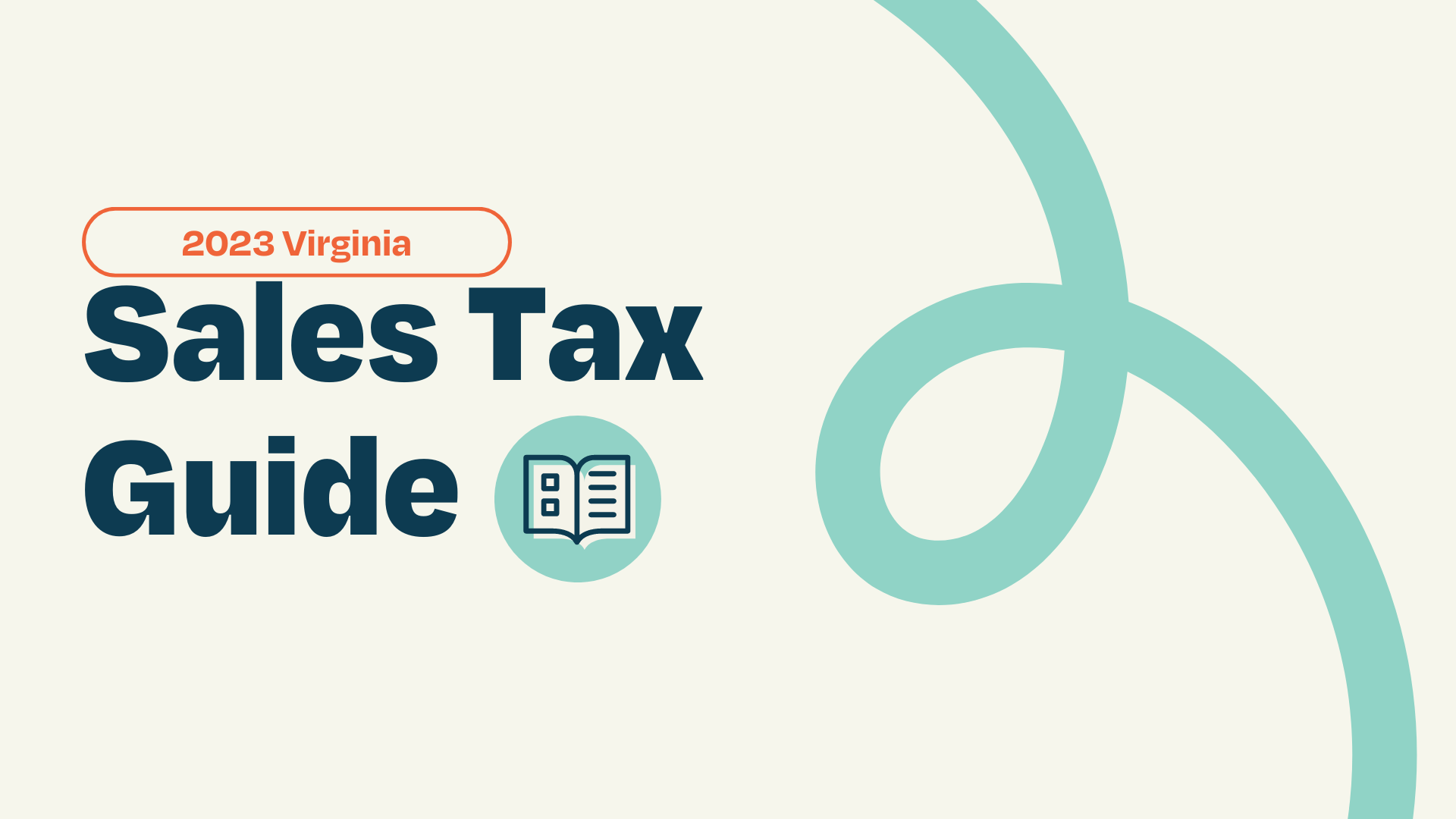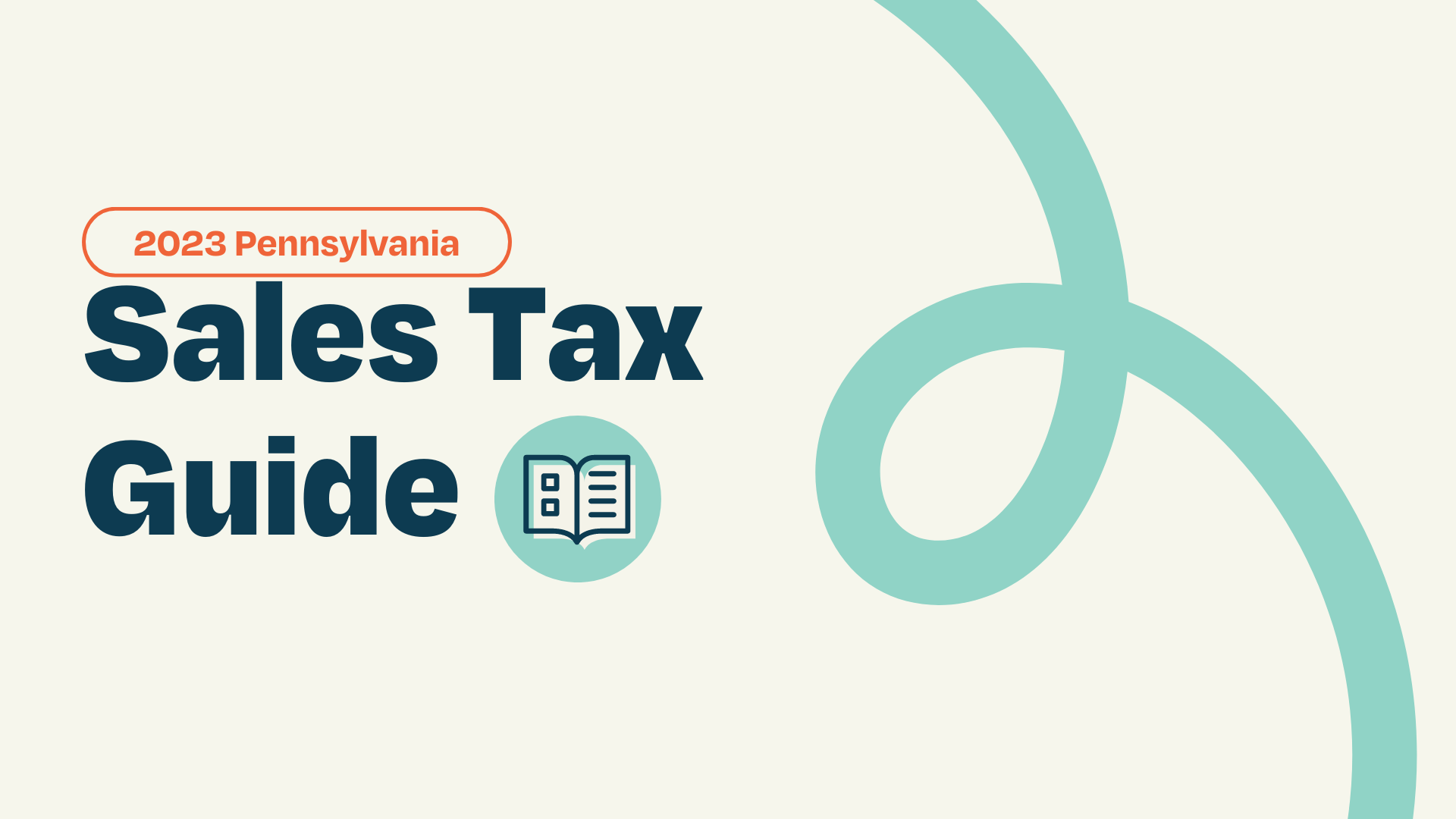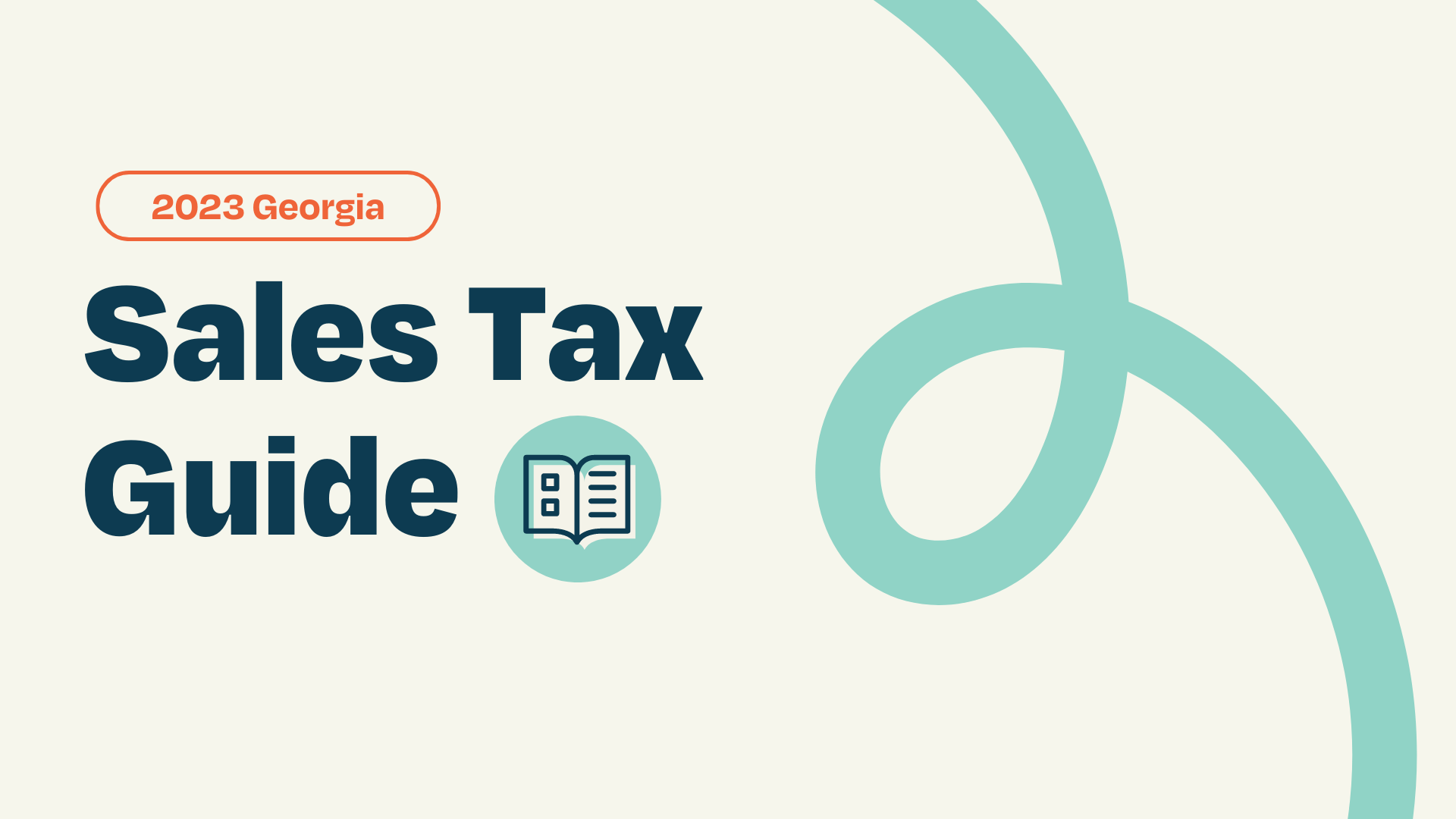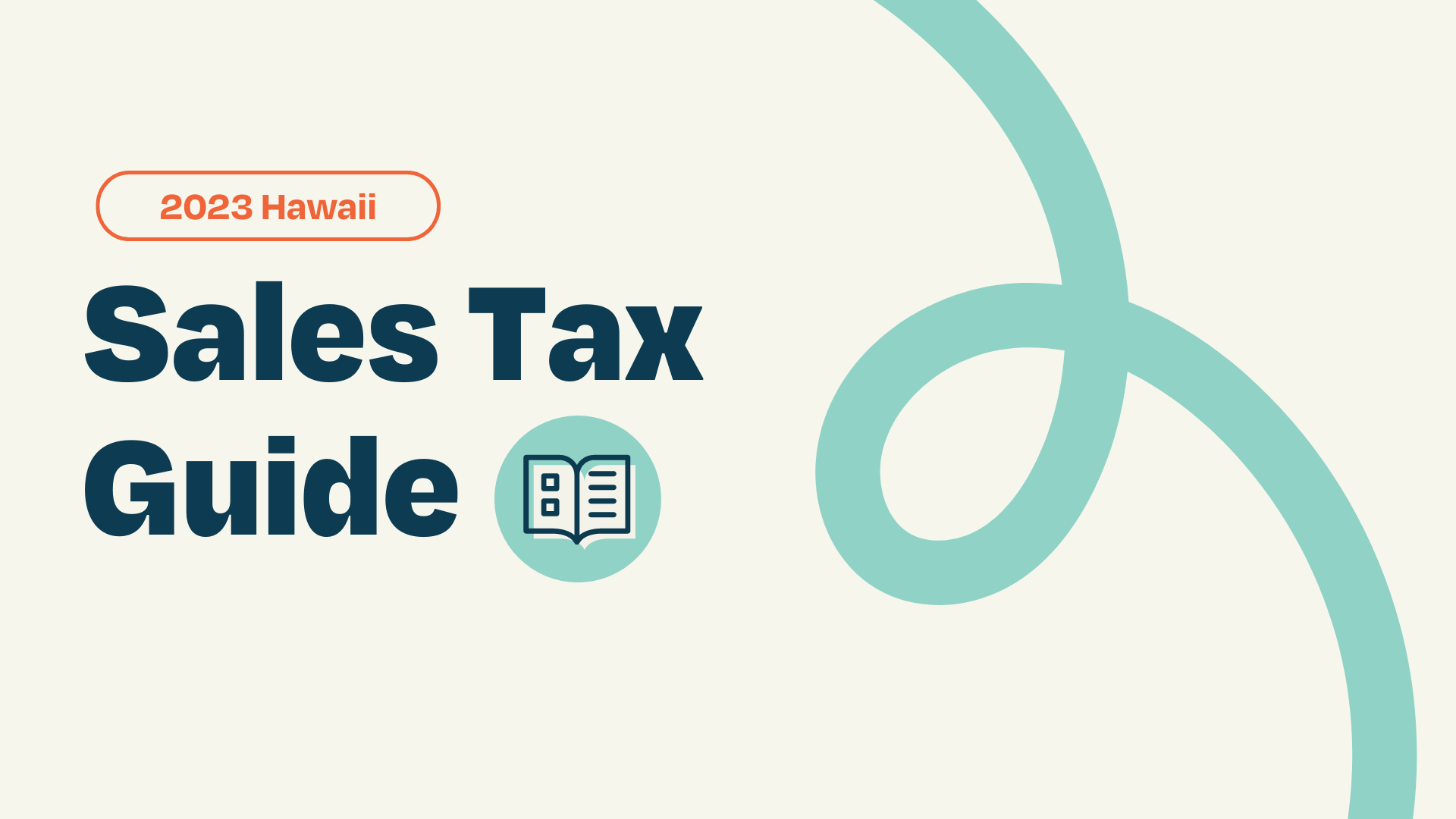Pennsylvania 2023 Sales Tax Guide
Pennsylvania Sales Tax in a Word Hey there, fellow Pennsylvania business owners! We know that dealing with sales taxes can feel like...

Welcome to the wonderful world of Virginia sales tax! As a small business owner, understanding this complex landscape is essential for your success. With this comprehensive guide, we'll demystify the process, covering everything from nexus and registration to collecting, filing, and paying your sales taxes.
Plus, we'll share some expert tips to help you avoid common pitfalls when filing your Virginia sales tax returns. So, strap in and let's embark on this exciting journey together, ensuring your business thrives in the Old Dominion!
|
Table of Contents |
Navigating sales tax can be a complex process, especially when dealing with different state departments. If you're doing business in Virginia, it's important to know who manages sales tax and how you can get in touch with them for inquiries or assistance.
In Virginia, the Department of Taxation is responsible for the administration and collection of sales tax. The department handles all issues related to sales tax including registration, filing, payment, and compliance.
|
Street Address |
Virginia Department of Taxation P.O. Box 1115 Richmond, VA 23218-1115 |
|
Phone Numbers |
Customer Services: (804) 367-8031 For the hearing impaired: Virginia Relay, call 711 or (800) 828-1120 |
|
|
You can send your queries through the secure email system by accessing your online services account on the Virginia Tax website. |
|
Website |
Virginia Department of Taxation |
Remember, when dealing with tax matters, it's always a good idea to reach out to a tax professional or the Department of Taxation directly if you have specific questions or concerns.
A key question for businesses operating in multiple states is whether they have "nexus" in a particular state. Nexus, in the context of sales tax, is a business's connection to a state that may require the business to collect and remit sales tax. If you're doing business in Virginia, it's crucial to understand what creates sales tax nexus in the state to ensure compliance.
There are several ways a business can establish sales tax nexus in Virginia, including physical nexus, economic nexus, affiliate nexus, click-through nexus, and marketplace nexus. Let's break down these different types of nexus.
In Virginia, physical nexus can be established if your business has a physical presence in the state. This could include having a store, office, warehouse, or employees present in the state. Even attending trade shows or conducting business meetings in Virginia could potentially establish physical nexus.
Virginia adopted economic nexus rules for sales tax after the landmark 2018 Supreme Court decision in South Dakota v. Wayfair. As of July 1, 2019, businesses that make at least $100,000 in annual gross revenue from sales in Virginia or have at least 200 separate transactions in the state in a given year are considered to have economic nexus, and are therefore required to collect and remit Virginia sales tax.
Affiliate nexus in Virginia can be established if your business has ties to an in-state business. This can occur if your business shares management, uses a similar business name, or shares an in-state distribution or fulfillment center with a Virginia business.
Click-through nexus can occur when a business has an agreement with a resident of Virginia (such as an affiliate) who refers customers to the out-of-state business for a commission. If the business makes more than $10,000 in sales through these referrals in a single year, the business is required to collect and remit sales tax.
As of July 1, 2019, marketplace facilitators (like Amazon or eBay) that facilitate or conduct sales on behalf of marketplace sellers must collect and remit Virginia sales tax if their gross revenue from sales, or the number of sales transactions in Virginia, meet the economic nexus thresholds.
Yes, Virginia does have use tax laws. Use tax is the counterpart to sales tax and applies to purchases made outside the state for use within the state when no sales tax was collected at the time of purchase. This means if you buy a product from an out-of-state retailer for use in Virginia and aren't charged sales tax, you're generally responsible for paying use tax directly to the Virginia Department of Taxation.
When operating a business in Virginia or making sales to Virginia customers, it's essential to understand the process of sales tax registration. Registering for sales tax is a legal requirement if you have a nexus in the state and it enables you to collect, file, and remit sales taxes on eligible sales.
In Virginia, you can register for a sales tax license online through the Virginia Tax Online Services for Businesses.
Here's a step-by-step guide to help you navigate the registration process:
Prepare Your Information: Gather all the necessary information you'll need to complete your registration. This includes your business name, address, contact information, entity type, EIN or social security number, and details about your products or services.
Create an Online Account: Visit the Virginia Department of Taxation's website and select 'Register a New Business' from the Business Taxes section. You'll be required to create an online account if you don't already have one. This account will allow you to manage your sales tax filings and payments in the future.
Fill Out the Registration Form: Once you have an account, you can complete the online registration form. This form will ask for details about your business, the type of goods or services you sell, and your projected sales.
Submit Your Application: After you've filled out the form, you can submit your application online. You'll receive a confirmation number, which you should keep for your records.
Wait for Your Sales Tax Certificate: After submitting your application, the Virginia Department of Taxation will review it. Once approved, they will mail you a Virginia Sales Tax Certificate, which should be displayed at your place of business.
Good news! There's no cost to register for a sales tax license in Virginia. The online application is completely free.
Yes, you generally need a Federal Tax ID Number, also known as an Employer Identification Number (EIN), to register for a sales tax license in Virginia. If you're a sole proprietor, you may be able to use your Social Security Number instead.
Depending on the nature of your business, you may need to register with other Virginia agencies. For example, if you have employees in Virginia, you will need to register with the Virginia Employment Commission for unemployment insurance tax. If you sell alcohol, you'll need to register with the Virginia Department of Alcoholic Beverage Control. It's important to research and understand all the registration requirements related to your specific business type and industry.
A crucial aspect of operating a business is understanding how, when, and from whom you should collect sales tax. If you're operating in Virginia, it's important to know the rules and regulations surrounding sales tax collection in the state.
Virginia is a destination-based sales tax state, which means that sales tax rates are determined by the location of the buyer when the transaction is completed. If you're selling to a customer in Virginia, you should charge the sales tax rate of your customer's location. This includes the Virginia state tax rate plus any local tax rate.
In Virginia, most tangible personal property and some services are subject to sales tax. Tangible personal property includes things like furniture, appliances, and electronics. Services that are taxed include those that involve creating or manufacturing a product.
Software as a Service (SaaS) is not generally considered taxable in Virginia. However, tax laws and rules can change, and it's always a good idea to check the most current regulations or consult with a tax professional.
Certain goods and services are exempt from sales tax in Virginia. This includes most types of food for home consumption, prescription drugs, and certain medical equipment and supplies. Some services, like professional services, are also typically exempt.
Certain entities are eligible for sales tax exemptions in Virginia. This includes government entities, non-profit organizations, and some types of manufacturers. Additionally, resellers who purchase goods for resale can often buy these goods tax-free.
If your customer is exempt from sales tax, you should collect a completed Virginia Sales Tax Exemption Certificate from them. This certificate should be kept in your records to justify the tax-free sale in case of an audit.
If you lose a Virginia Sales Tax Exemption Certificate, it's important to get a new copy from your customer as soon as possible. Without this certificate, you could be held responsible for the sales tax that should have been collected on the sale. Always keep good records and make copies of these certificates for your files.
After you've registered for your Virginia sales tax license, collected the appropriate sales tax, the next step is filing and paying those taxes. Let's take a look at when and how to file, as well as penalties and incentives related to Virginia's sales tax.
In Virginia, sales tax returns can be due on a monthly, quarterly, or annual basis. The frequency at which you file depends on the amount of sales tax you collect from customers in Virginia.
The filing frequency and dues dates are as follows:
|
Monthly Filing |
If your monthly sales tax liability is more than $100, you must file monthly. |
Due on the 20th of the month following the reporting period. |
|
Quarterly Filing |
If your monthly sales tax liability is less than $100, you must file monthly. |
Due on the 20th of the month following the end of the quarter (April 20, July 20, October 20, and January 20). |
If a Virginia sales tax filing date falls on a weekend or holiday, your sales tax filing is due the next business day.
Once you've determined when you need to file, you can file your Virginia sales tax return online through the Virginia Tax Online Services for Businesses. Here's a detailed step-by-step guide to help you navigate this process:
Prepare Your Sales Data: Before you start, gather all your sales data for the reporting period. This includes gross sales, taxable sales, exempt sales, and the amount of sales tax collected.
Log Into Your Online Account: Visit the Virginia Tax Online Services for Businesses and log into your account. If you don't already have an account, you'll need to create one.
Locate Your Sales Tax Return: Once logged in, navigate to the "File Return/Payment" section. From there, you can access your sales tax return.
Complete Your Sales Tax Return: Fill out the return with the sales data you collected. You'll need to break down your sales and sales tax by jurisdiction if you made sales in more than one location in Virginia.
Review and Submit: Review your return for accuracy. Once you're satisfied everything is correct, submit your return.
Make a Payment: After you've submitted your return, you'll be prompted to make a payment for the sales tax due. You can pay via electronic check, credit card, or debit card.
Record Your Confirmation Number: After you've submitted your return and payment, you'll receive a confirmation number. Record this number and keep it with your records for future reference.
Remember, even if you didn't make any sales during a reporting period, you still need to file a "zero return."
Failing to file or pay your Virginia sales tax can result in penalties. If you file your return or make your payment late, a penalty of 6% per month can be added to your tax bill, up to a maximum of 30%. If you neglect to file a return, a separate penalty of $10 or 10% of the tax due, whichever is greater, can be added.
Yes, Virginia offers several sales tax incentives, including exemptions and credits, to encourage business development and investment in certain industries or areas. These incentives vary, but they often involve sectors like manufacturing, research and development, and green energy. It's always a good idea to consult with a tax professional or the Virginia Department of Taxation to see if your business qualifies for any incentives.
Filing sales tax returns can be a complex process, and it's easy to make mistakes. Here are five tips to help you avoid common pitfalls when filing your Virginia sales tax returns:
Keep Accurate Records: One of the most common mistakes businesses make is not keeping accurate sales records. Ensure you're keeping track of all your taxable and non-taxable sales, the amount of sales tax collected, and any exempt sales. This helps ensure you're reporting accurate information on your sales tax return.
File Even If You Don't Owe Tax: Even if you didn't make any sales during a reporting period, you're still required to file a "zero return" with the Virginia Department of Taxation. Failing to file can result in penalties.
Understand Your Filing Frequency: Virginia has different filing frequencies (monthly, quarterly, annually) based on the amount of sales tax you collect. Make sure you understand when your returns are due to avoid late filing and payment penalties.
Collect and Maintain Exemption Certificates: If you make tax-exempt sales, it's important to collect and maintain sales tax exemption certificates from your customers. If you're audited and can't produce these certificates, you could be held responsible for the sales tax on these sales.
Pay On Time: Once you've filed your return, remember to pay any sales tax you owe by the due date. Late payments can result in penalties and interest charges.
Remember, when in doubt, it's always a good idea to consult with a tax professional. They can provide advice and guidance tailored to your specific business needs.
Navigating sales tax in Virginia can seem daunting, but with a clear understanding of the rules and processes, it becomes a manageable task. From knowing when to collect sales tax, understanding filing frequencies, to successfully submitting your sales tax return, each step is crucial in maintaining compliance with Virginia's tax laws.
Remember, the key to smoothly handling sales tax is keeping accurate records, understanding your obligations, and staying on top of due dates. And even if you make no sales during a reporting period, don't forget to file a "zero return" to stay in good standing.
While this guide provides a comprehensive overview, sales tax laws can change and may vary based on your specific business situation. When in doubt, don't hesitate to seek advice from a tax professional. They can ensure you're meeting all your sales tax obligations and taking advantage of any available incentives.
At the end of the day, mastering sales tax is just another part of running a successful business. With careful attention and a bit of practice, you'll be a pro in no time. Remember, we're here to help you succeed. Happy filing!
|
Alaska Sales Tax Guide (N/A) |
||||
|
Montana Sales Tax Guide (NA) |
||||
|
Oregon Sales Tax Guide (N/A) |
||||
|
Delaware Sales Tax Guide (N/A) |
||||
|
New Hampshire Sales Tax Guide (NA) |
||||
And don't forget to check out our blog about Economic Nexus, which serves as an invaluable resource for businesses who have sales that are subject to sales tax.
This blog is for informational purposes only and the information is accurate as of 2023-06-19. If you want legal advice on sales tax law for your business, please contact a State and Local Tax (SALT) professional. Keep in mind that sales tax regulations and laws are subject to change at any time. While we strive to keep our blog current, this blog possibly may be out of date by the time you review it.

Pennsylvania Sales Tax in a Word Hey there, fellow Pennsylvania business owners! We know that dealing with sales taxes can feel like...

Georgia Sales Tax in a Word Welcome, tax adventurers, to the land of Georgia sales tax! In a single word, we sum up this fascinating topic: dynamic....

1 min read
Hawaii Sales Tax in a Word Aloha, dear reader! Imagine, if you will, you're on a dazzling beach in Hawaii, the golden sun on your face, the rhythmic...